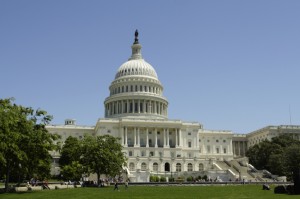By Allison G. S. Knox, M.A., EMT-B, Faculty at American Military University
Emergency Medical Services (EMS) is an intriguing policy area because it encompasses numerous issue areas at the local, state and federal levels of government. Emergency medical technicians (EMTs) and paramedics are cross-trained between emergency medicine and public safety, which allows them to be creative and resourceful when handling 9-1-1 emergencies.
While it makes sense to an EMT or paramedic that they handle these diverse 9-1-1 situations, to lawmakers it can be enormously challenging to figure out how to categorize EMS among their many policy issues. Thus, it is often difficult for lawmakers to figure out specifically how to handle EMS-related issues.

Members of Congress (Representatives and Senators at the federal level of government) usually have legislative assistants who handle a portfolio of issue areas. Within these issue areas, legislative assistants follow the wants and needs of the elected official’s constituents as well as various pieces of legislation heading to the Senate and House floors, respectively.
Because legislative assistants are dealing with so many different issues, they need to classify them into categories so they can handle those issues accordingly. EMS, by virtue of the fact that it’s a cross between multiple issue areas such as healthcare, homeland security, emergency management, and public safety, often presents a challenge to legislative assistants about how to classify EMS issues.
As a result, one office may handle EMS issues differently than another office. Furthermore, because EMS is an issue area that isn’t widely understood by many Members of Congress and their staff, it may not be addressed in the fashion that EMTs and paramedics would essentially like to see.
The Need to Educate Elected Officials and Their Staff
It isn’t that Members of Congress are not interested in the wants and needs of EMTs, but rather that they can’t figure out specifically how EMS issues should be categorized when it comes to public policy initiatives. With so many needs on the table requiring lawmakers to create essential legislation, the difficulty lies in how to phrase such policies and figure out how EMS issues should be handled effectively at the federal level.
EMTs and paramedics historically have had a difficult time expressing their wants and needs to Members of Congress and their staff. Depending on what legislation an EMT or paramedic is striving for, he or she should look specifically for legislative assistants who cater to the issue area of the legislation—instead of asking for whomever handles EMS issues. It is up to EMTs and paramedics to educate legislative assistants about these issues. After all, the burden of explanation lies with those in EMS and we must strive to effectively explain these specific issue areas to elected officials.

Comments are closed.